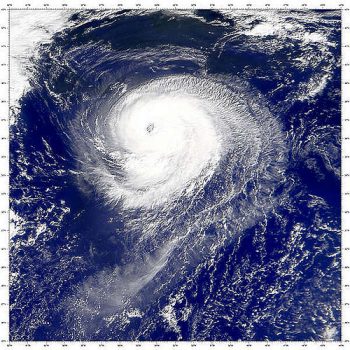Reading About Natural Disasters in Dutch Posted by Karoly Molina on Sep 24, 2017 in Dutch Vocabulary
It seems that lately, North and South America have been suffering terrible tragedies from hurricanes and earthquakes. There has been plenty of coverage in the Netherlands about this with a lot of new vocabulary that might make it confusing to understand. This is why I have come up with this quick summary of some of the natural disasters happening and related vocabulary.
Orkaan Harvey, Irma en Maria
The Atlantic Ocean has been suffering an unusual hurricane season this year. It started with Orkaan Harvey that devastated the Caribbean islands as well as the coast of Texas with Houston being the most notable city. The hurricane hit Houston as a category 4 hurricane (kracht 4) and left the city onder water. The damage done to Texas has been called ongeëvenaarde catastrofe or unrivaled catastrophe.
You can read more about this in this article by the Volkskrant.
After Harvey, the Dutch Antilles suffered tremendous schade or damage from Hurricane Irma. Right after the hurricane hit, Sint-Maarten remained without communication because of the severe damage to infrastructure. King Willem Alexander traveled to the islands to assess the damage and commented that he had never seen that degree of damage. The following video shows more of his visit to the islands.
This week, Puerto Rico was also hit by orkaan Maria. The island was already suffering after the previous hurricanes, not to mention the financial burdens of bankruptcy. Maria is the zwaarste or strongest storm to hit Puerto Rico in more than 90 years. You can read more about it in this article by NOS.
Aardbeving in Mexico
Despite having suffered flooding during the hurricane season, Mexico had been spared from severe damage from natural disasters. That is until the aardbevingen or earthquakes of September 7th in the southern states of Oaxaca and Chiapas and on September 19 in central Mexico. The second earthquake has received more news coverage because the capital, Mexico City, with its 25+ million inhabitants suffered severe damage. The epicentrum or epicenter of this earthquake was only 120 kilometers away from the capital and was a magnitude 7.1 (kracht 7,1) earthquake. This earthquake happened on the 32nd anniversary of what has been the deadliest and most destructive earthquake to hit the country. In the morning of September 19, 2017, many schools and public buildings held oefenen or practice drills to practice evacuating buildings quickly and safely. In the afternoon, a real earthquake hit.
At school, Mexican students are taught how to quickly leave a building. They are taught three simple phrases they must recite as they are walking out which says “I don’t run, I don’t scream, I don’t push.” In Dutch this would say ik ren niet, ik schreeuw niet, ik duw niet. This was implemented in the school programs after 1985 and was heard in many buildings and schools this past week.
The following video explains more about the damage in Mexico.

Build vocabulary, practice pronunciation, and more with Transparent Language Online. Available anytime, anywhere, on any device.





Comments:
Joseph T. Madawela:
very helpful thank you